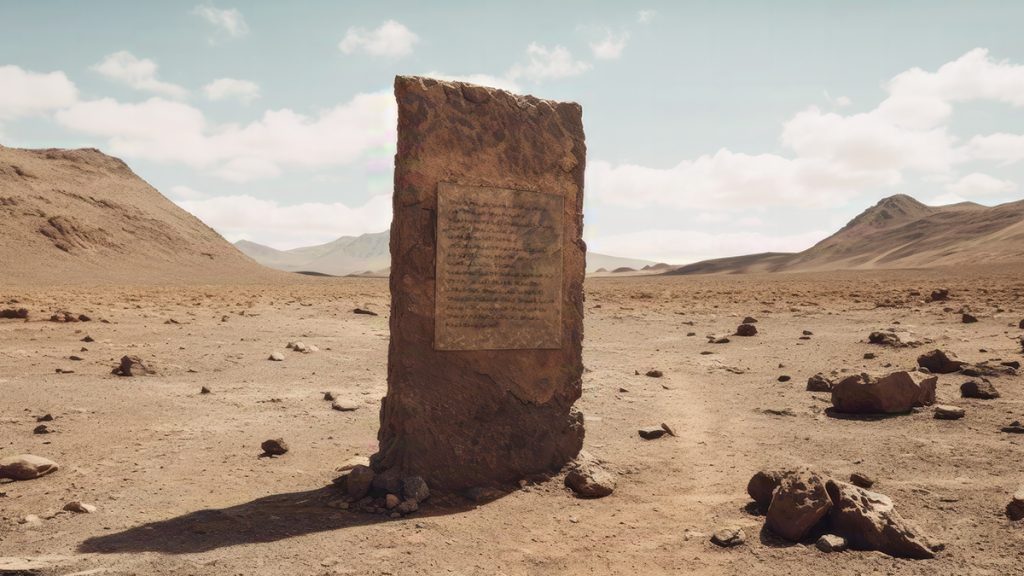ThemeWorlder’s exploration team is dedicated to thoroughly uncovering the vast lore of Arcadia, including the intriguing tale of Rodolpho, the last Arcadian. We spare no resources in our pursuit of accurate information, delving into the depths of this desolate land. A few months ago, our team made a groundbreaking discovery about the extinction of the Arcadians. Now, we have pieced together intriguing insights into the possible final years of Rodolpho, shedding light on the significance of his efforts in the face of oblivion.
The tale begins in the year 184 LCE in the Medici principality, where Arcadia was on the brink of extinction. Once a flourishing civilization, it now faced chaos and despair due to the devastating consequences of blood fire, which greatly impacted their fertility. The Arcadians knew their days were numbered as they faced the imminent end of their civilization.
In the midst of this turmoil, a figure named Rodolpho emerged as the chronicler and guardian of their history. As the last survivor, he shouldered the solemn duty of preserving the legacy of his people. With unwavering determination, Rodolpho meticulously etched their story onto the final stone tablet, ensuring that their existence would transcend the ravages of time. This act of preservation became a testament to the resilience of the Arcadians in the face of despair.
Arcadia, with its rolling hills and ancient ruins, stands as a poignant testament to a bygone era. Scattered across the desolate landscape, stone tablets bear witness to the history and stories of the Arcadians. Recognizing their impending demise, the remaining inhabitants, known as the Mosaic Caravan, understood the weighty responsibility of documenting their existence for any future beings who might stumble upon their forsaken world. The collective memory of the Arcadians was carefully entrusted to these tablets, serving as a tangible link to a fading legacy.
As the years passed, the dwindling number of survivors succumbed to natural causes or diseases that were once curable but now ravaged their population. The effects of blood fire pushed the Arcadian civilization back by centuries, erasing their painstaking achievements. Amidst the chaos and despair that consumed Arcadia, the War of Despair erupted, plunging Arcadian into disarray. Rules were abandoned, anarchy prevailed, and the fight for dwindling resources intensified the sense of hopelessness. As chaos engulfed the land, fires ravaged the cities, and the anguished cries of the Arcadians afflicted by disease echoed in the distance. Some of the remaining population, predominantly elderly and frail, awaited their inevitable fate. In the quiet corners of their homes, many passed away peacefully, their spirits finally finding solace amidst the turmoil.
In his old age, Rodolpho’s remained resilient and determined. He devoted himself to chronicling the final days of Arcadia, meticulously etching their story onto the last stone tablet. Each stroke of his chisel was imbued with a profound sense of purpose, as he recognized the weight of his responsibility to preserve the history of the Arcadians. As he etched the final words onto the tablet, a mix of sadness and a bittersweet sense of fulfillment washed over him. While burdened by his own sorrow and the loss of family and friends to disease and war, found solace in the anticipation of rejoining his loved ones in the underworld. However, the loneliness of being one of the last survivors, haunted by impending death, weighed heavily on him.
In his final act, the 102 year old wrote “Let it not be forgotten, we were here,” and placed the stone tablet among the others. It became a silent testament to the resilience and spirit of the Arcadians. Rodolpho departed with a sense of closure, knowing that he had fulfilled his role as the chronicler of Arcadia’s history. A few days later, he passed away.
The tale of Arcadia carries profound implications for the fleeting nature of existence and the preservation of cultural heritage. Through Rodolpho’s dedication, we bear witness to the extraordinary impact of a civilization teetering on the edge of extinction. The story of Arcadia serves as a reminder of the impermanence of civilizations and the significance of preserving their legacies for future generations.
The fate of Arcadia evokes parallels with historical human civilizations that have vanished from the annals of time, like the Mayans, the lost city of Atlantis, and Pompeii. It prompts reflection on the fragility of human accomplishments and the significance of historical preservation. The tale of Arcadia also encourages us to contemplate our own mortality and the transient nature of our existence. It emphasizes the importance of leaving a lasting legacy and cherishing the stories that shape our identity.
At its core, the tale of Rodolpho underscores the Arcadians’ desire to safeguard their histories and leave an indelible legacy. It urges us to recognize the profound impact of civilizations on the brink of vanishing and impels us to reflect on our roles as custodians of our cultural heritage. By exploring the themes of preservation, legacy, and the ephemeral nature of existence, this narrative invites us to cherish, document, and value the stories that define us.
Read More: Transforming Communication in Arcadia: Rodof’s Impact



